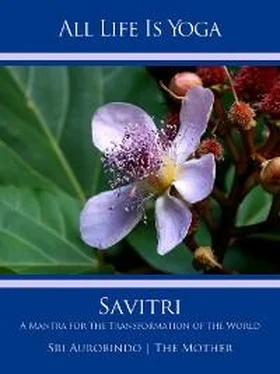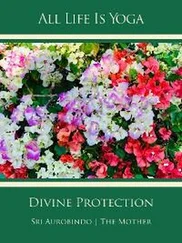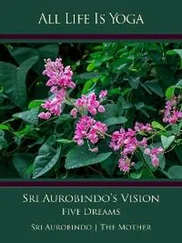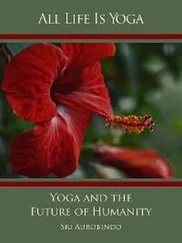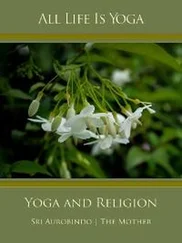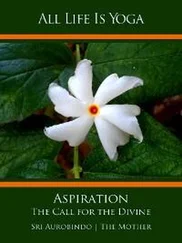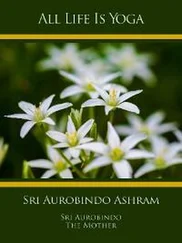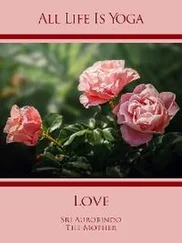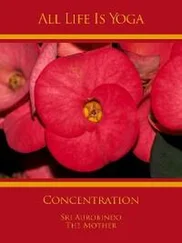The Supreme Word
Words of Sri Aurobindo
...We must recollect that in the Vedic system the Word was the creatrix; by the Word Brahma creates the forms of the universe. Moreover, human speech at its highest merely attempts to recover by revelation and inspiration an absolute expression of Truth which already exists in the Infinite above our mental comprehension. Equally, then, must that Word be above our power of mental construction.
All creation is expression by the Word; but the form which is expressed is only a symbol or representation of the thing which is. We see this in human speech which only presents to the mind a mental form of the object; but the object it seeks to express is itself only a form or presentation of another Reality. That reality is Brahman. Brahman expresses by the Word a form or presentation of himself in the objects of sense and consciousness which constitute the universe, just as the human word expresses a mental image of those objects. That Word is creative in a deeper and more original sense than human speech and with a power of which the utmost creativeness of human speech can be only a far-off and feeble analogy.
The word used here for utterance means literally a raising up to confront the mind. Brahman, says the Upanishad, is that which cannot be so raised up before the mind by speech.
Human speech, as we see, raises up only the presentation of a presentation, the mental figure of an object which is itself only a figure of the sole Reality, Brahman. It has indeed a power of new creation, but even that power only extends to the creation of new mental images, that is to say of adaptive formations based upon previous mental images. Such a limited power gives no idea of the original creative puissance which the old thinkers attributed to the divine Word.
If, however, we go a little deeper below the surface, we shall arrive at a power in human speech which does give us a remote image of the original creative Word. We know that vibration of sound has the power to create – and to destroy – forms; this is a commonplace of modern Science. Let us suppose that behind all forms there has been a creative vibration of sound.
Next, let us examine the relation of human speech to sound in general. We see at once that speech is only a particular application of the principle of sound, a vibration made by pressure of the breath in its passage through the throat and mouth. At first, beyond doubt, it must have been formed naturally and spontaneously to express the sensations and emotions created by an object or occurrence and only afterwards seized upon by the mind to express first the idea of the object and then ideas about the object. The value of speech would therefore seem to be only representative and not creative.
But, in fact, speech is creative. It creates forms of emotion, mental images and impulses of action. The ancient Vedic theory and practice extended this creative action of speech by the use of the Mantra. The theory of the Mantra is that it is a word of power born out of the secret depths of our being where it has been brooded upon by a deeper consciousness than the mental, framed in the heart and not originally constructed by the intellect, held in the mind, again concentrated on by the waking mental consciousness and then thrown out silently or vocally – the silent word is perhaps held to be more potent than the spoken – precisely for the work of creation. The Mantra can not only create new subjective states in ourselves, alter our psychical being, reveal knowledge and faculties we did not before possess, can not only produce similar results in other minds than that of the user, but can produce vibrations in the mental and vital atmosphere which result in effects, in actions and even in the production of material forms on the physical plane.
As a matter of fact, even ordinarily, even daily and hourly we do produce by the word within us thought-vibrations, thought-forms which result in corresponding vital and physical vibrations, act upon ourselves, act upon others, and end in the indirect creation of actions and of forms in the physical world. Man is constantly acting upon man both by the silent and the spoken word and he so acts and creates though less directly and powerfully even in the rest of Nature. But because we are stupidly engrossed with the external forms and phenomena of the world and do not trouble to examine its subtle and non-physical processes, we remain ignorant of all this field of science behind.
The Vedic use of the Mantra is only a conscious utilisation of this secret power of the word. And if we take the theory that underlies it together with our previous hypothesis of a creative vibration of sound behind every formation, we shall begin to understand the idea of the original creative Word. Let us suppose a conscious use of the vibrations of sound which will produce corresponding forms or changes of form. But Matter is only, in the ancient view, the lowest of the planes of existence. Let us realise then that a vibration of sound on the material plane presupposes a corresponding vibration on the vital without which it could not have come into play; that again presupposes a corresponding originative vibration on the mental; the mental presupposes a corresponding originative vibration on the supramental at the very root of things. But a mental vibration implies thought and perception and a supramental vibration implies a supreme vision and discernment. All vibration of sound on that higher plane is, then, instinct with and expressive of this supreme discernment of a truth in things and is at the same time creative, instinct with a supreme power which casts into forms the truth discerned and eventually, descending from plane to plane, reproduces it in the physical form or object created in Matter by etheric sound. Thus we see that the theory of creation by the Word which is the absolute expression of the Truth, and the theory of the material creation by sound-vibration in the ether correspond and are two logical poles of the same idea. They both belong to the same ancient Vedic system.
This, then, is the supreme Word, Speech of our speech. It is vibration of pure Existence, instinct with the perceptive and originative power of infinite and omnipotent consciousness, shaped by the Mind behind mind into the inevitable word of the Truth of things; out of whatever substance on whatever plane, the form or physical expression emerges by its creative agency. The Supermind using the Word is the creative Logos.
The Word has its seed-sounds – suggesting the eternal syllable of the Veda, AUM, and the seed-sounds of the Tantriks – which carry in them the principles of things; it has its forms which stand behind the revelatory and inspired speech that comes to man’s supreme faculties, and these compel the forms of things in the universe; it has its rhythms, – for it is no disordered vibration, but moves out into great cosmic measures, – and according to the rhythm is the law, arrangement, harmony, processes of the world it builds. Life itself is a rhythm of God.
But what is it that is expressed or raised up before the mental consciousness by the Word in the phenomenal world? Not Brahman, but truths, forms and phenomena of Brahman. Brahman is not, cannot be expressed by the Word; he does not use the word here to express his very self, but is known only to his own self-awareness. And even the truths of himself that stand behind the forms of cosmic things are in their true reality always self-expressed to his eternal vision in a higher than the mental vibration, a rhythm and voice of themselves that is their own very soul of movement. Speech, a lesser thing, creates, expresses, but is itself only a creation and expression. Brahman is not expressed by speech, but speech is itself expressed by Brahman. And that which expresses speech in us, brings it up out of our consciousness with its strivings to raise up the truth of things to our mind, is Brahman himself as the Word, a Thing that is in the supreme superconscience. That Word, Speech of our speech, is in its essence of Power the Eternal himself and in its supreme movements a part of his very form and everlasting spiritual body, brahmano rupam.
Читать дальше
